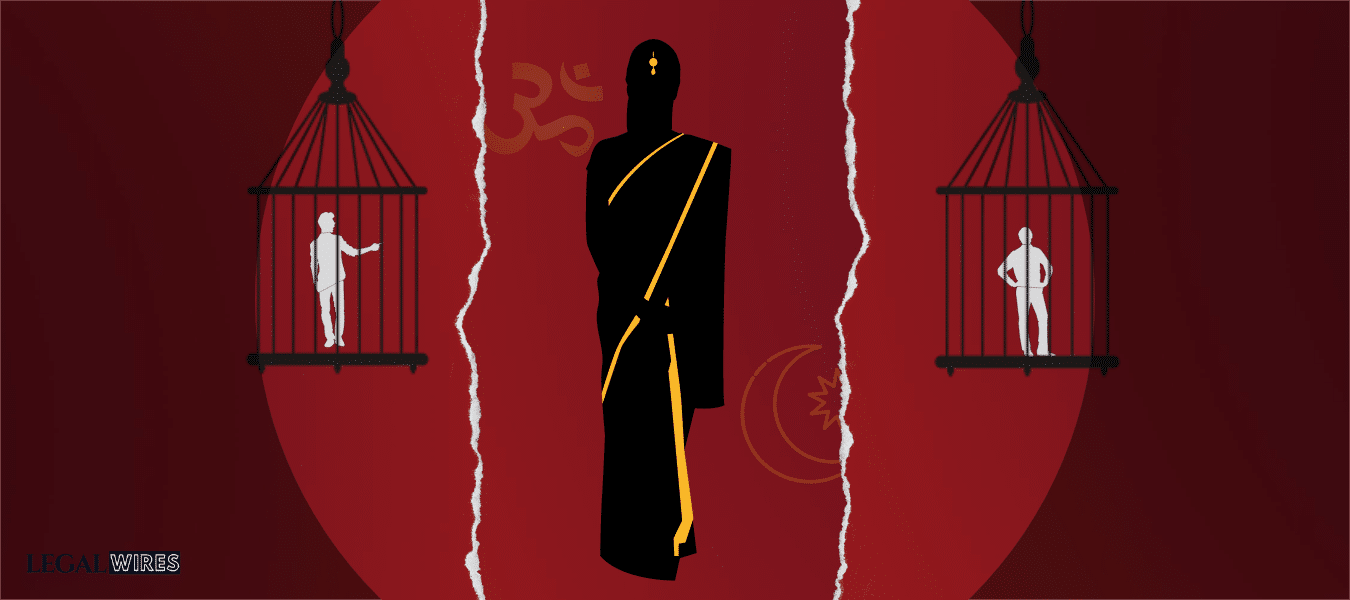Citation: AIR 2002 MP 263 Date of Judgment: 17th May,

Citation: AIR 2002 MP 263
Date of Judgment: 17th May, 2002
Bench: V.K. AGRAWAL
Facts:
Respondent/husband (hereinafter referred to as R) and appellant/wife (hereinafter referred to as A) were married on 23-01-1990 at Jabalpur, in accordance with the Special Marriage Act, 1954. They lived as husband and wife for about a period of one year. Subsequently, the relations between the parties became strained and they started living separately. R filed a petition u/s. 34 and 25 of Act, seeking a decree of nullity and of the declaration of their marriage as null and void. It was averred by R that after the marriage between the parties on 23-1-1990, R came to know that A was already married to a man named Motilal Vishwakarma (hereinafter referred to as X). X had died prior to the marriage of the parties. It was further averred by R that the fact of her marriage with X was suppressed by the A, and that R agreed to marry her believing that she was a virgin. It was averred by R that A by suppressing from him the aforesaid fact has exercised fraud on him.
The learned trial Court held that the appellant/wife suppressed the fact of her earlier marriage with X, and thus the consent of the respondent/husband for the marriage was obtained by fraud, declaring the marriage between the parties as null and void, by a decree of nullity.
An appeal was made by A to the High Court. It was submitted by A that they were known to each other for a long time prior to the marriage and R was fully aware that she was married earlier and her first husband had died. It was, therefore, submitted that there was no suppression of any material fact so as to constitute the exercise of fraud by A.
High Court did not find substance in the appeal and rejected the appeal on the following grounds:
- The appellant was married before and was a widow at the time of her marriage with the respondent, which was a material fact. It was submitted by the respondent that the material fact viz. her earlier marriage was never intimated by her to him.
- The consent of the husband for marriage was obtained by the wife by exercising fraud. It was submitted that if R knew about the earlier marriage of A, he would not have entered into marital ties with her. Section 25(iii) of the Act which lays down, the consent of either party in the marriage was obtained by coercion or fraud, as defined in S.17 of the Indian Contract Act, 1872: (a) that the petitioner was at the time of the marriage ignorant of the facts alleged.
- R states that thereafter a document captioned as ‘Iqrarnama’ (Ex. P/1) was executed by the A. According to R. Ex. P/1 was written after the disclosure to him about the earlier marriage of A. The fact of earlier marriage and the disclosure thereof was not mentioned in the document (Ex. P/1). In the document (Ex. P/1) it was only stated that there was a dispute between the parties, but the reason for the dispute was not mentioned therein. The Appellant submitted that the said document got executed by the respondent from the appellant by exercising force or deception on her. The contention as above cannot be accepted, as the said document has been executed by the appellant, in the presence of her brother and some other witnesses. Therefore, the said document would not by itself be indicative of the fact that the appellant had disclosed to the respondent before their marriage that the appellant was married earlier.
- As against the above statement, the appellant in her written statement nowhere specifically averred that she had intimated the respondent about her marriage. It may also be noticed that the appellant has earlier stated that the respondent came to know from her neighbors that she was a widow and then making an improvement stated that she herself informed the respondent about the above fact. As noticed above, the later statement of the appellant is not supported by her pleadings and does not appear to be reliable.
Key law points established in the case:
- Whether the suppression of material fact would amount to fraud?
Yes.
The suppression of material fact as above would amount to exercise of fraud. It may be noticed in the above context that in view of sub-s. (4) of S. 17 of the Contract Act, to constitute fraud, it is not essential, that there should be any misrepresentation by express words. It is sufficient if it appears that the party deceiving knowingly induced the defendant to enter into a contract by leading him to believe that which the party deceiving knew to be false. It would be useful to reproduce S. 25 of the Special Marriage Act, 1954 which lays down the conditions in which the marriage solemnized under the ‘Act’ be avoided. It reads, any marriage solemnized under this Act shall be voidable and may be annulled by a decree of nullity if the consent of either party in the marriage was obtained by coercion or fraud, as defined in the Indian Contract Act, 1872.
It also appears from the facts and circumstances of the case that it was the obligation and duty of the appellant to have intimated and apprised the respondent about her earlier marriage. She has failed to do so. The respondent/husband has stated that, if he had known that the appellant was married from before, he would not have entered into wedlock with the appellant. It is, therefore, clear that suppression and active concealment of the fact of her earlier marriage and she being a widow would amount to a material misrepresentation.


